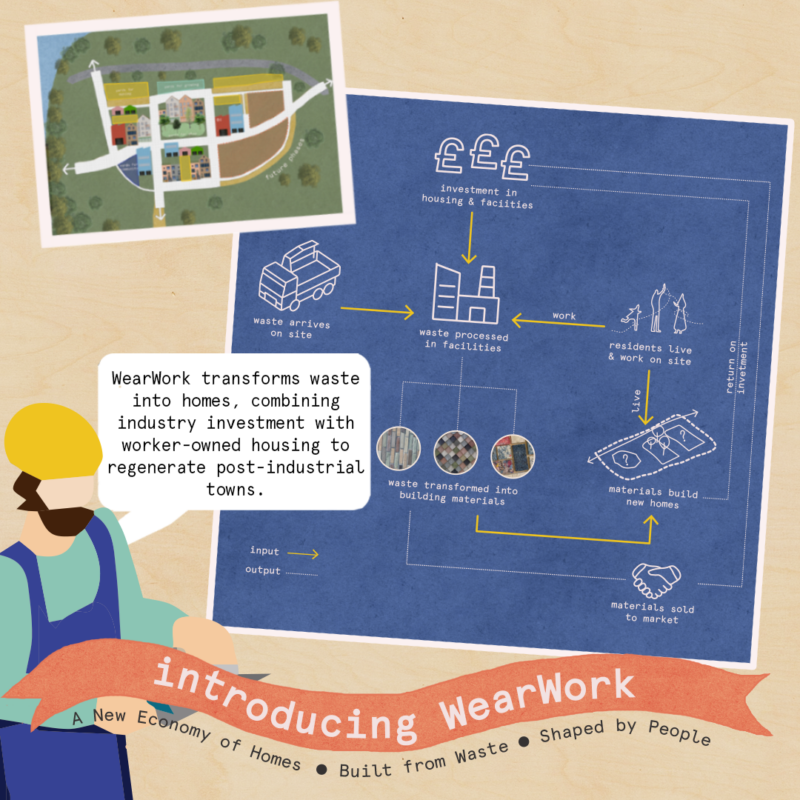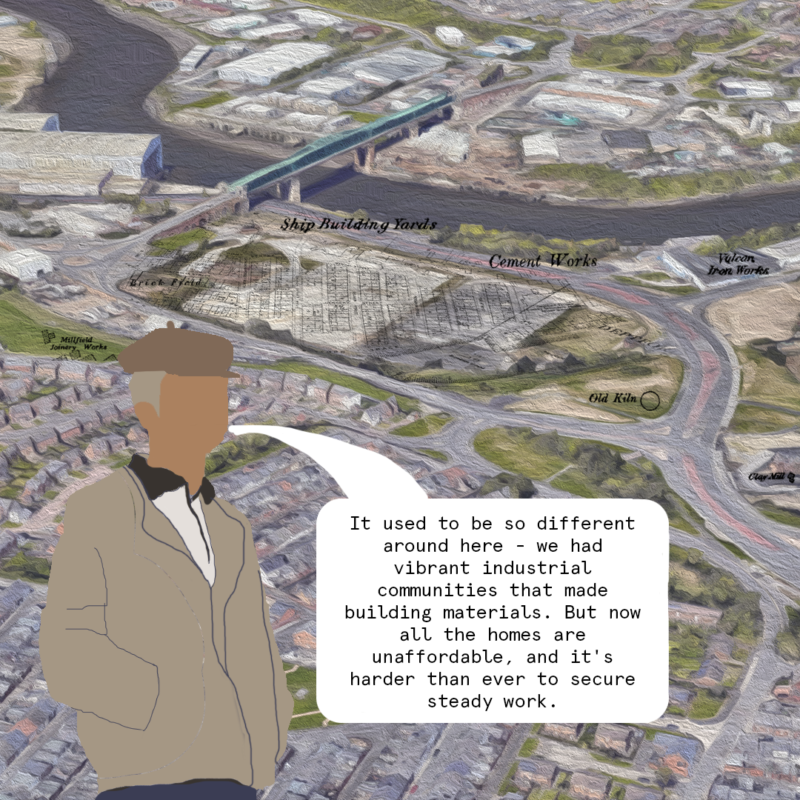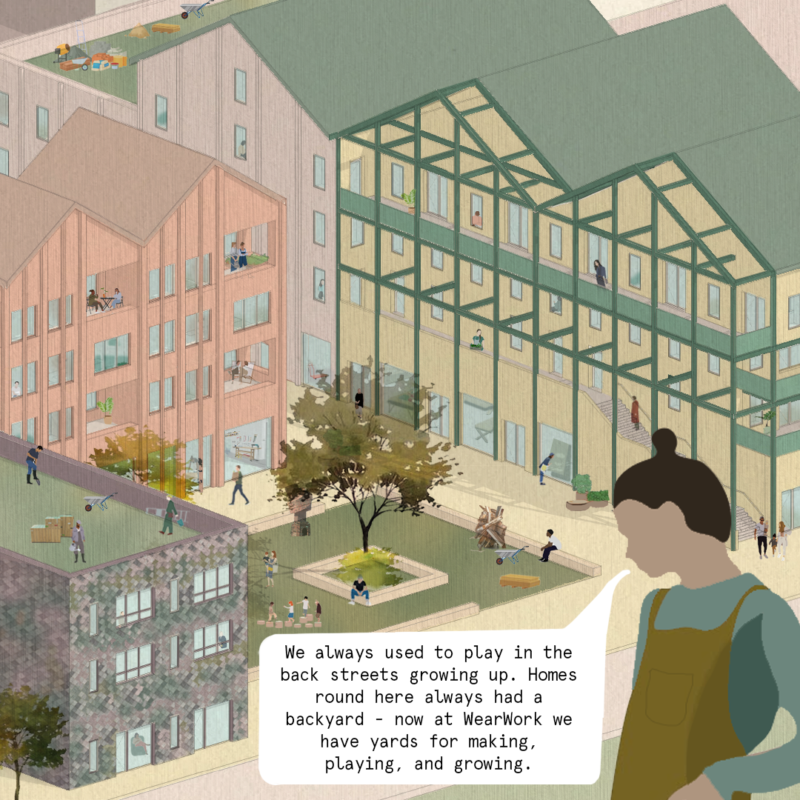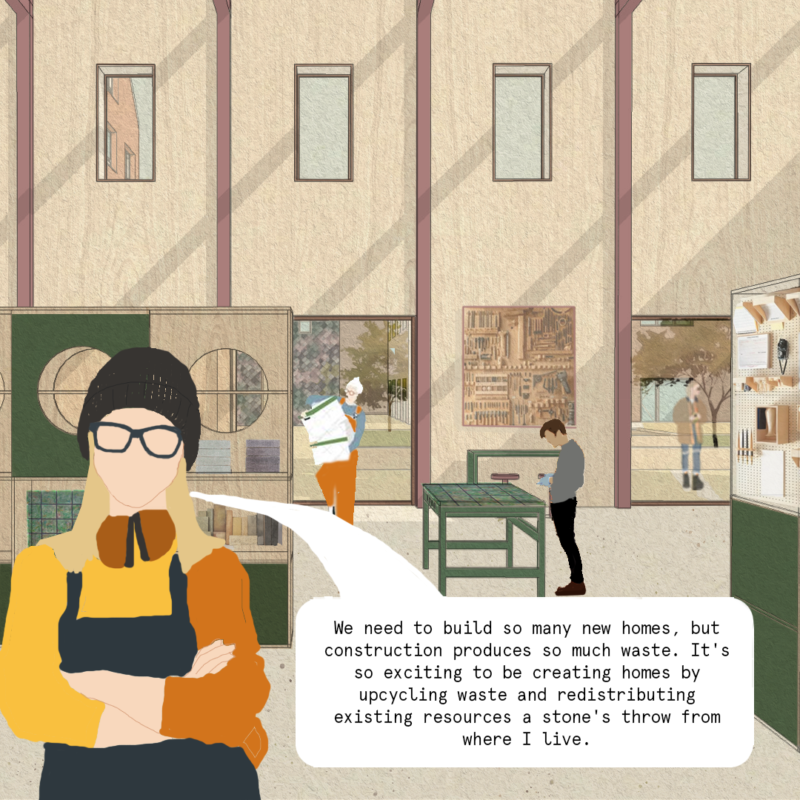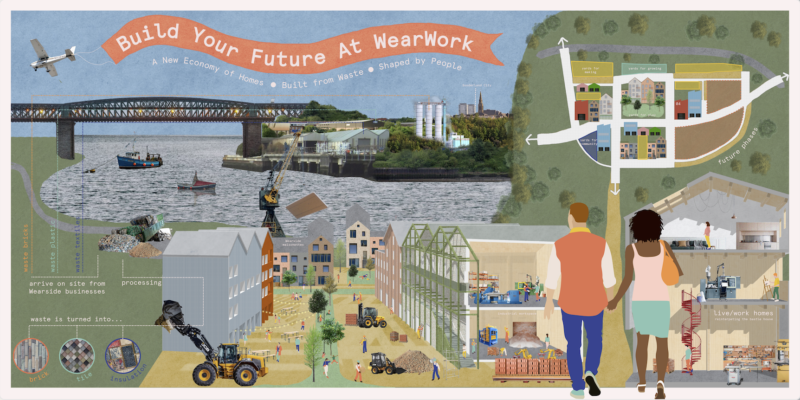
WearWork
CARD Projects, PATCH Collective, and Maria McLintock
16.8 million people in the UK live in old industrial towns where industries like coal, steel, and shipbuilding have declined, shedding thousands of jobs.
Sunderland’s industrial downturn has left communities like Millfield behind. One of the city’s most deprived wards, it faces high unemployment, low life expectancy, and a rental rate nearing 50%. Yet, with a quarter of residents born outside the UK, it remains a place of movement, adaptation, and potential.
WearWork proposes a new model of housing production, embedding mass material manufacturing within communities. On disused land along the River Wear, waste is transformed at scale into high-quality building components, creating an economy that values labour and time over capital. Industries invest directly in the housing and livelihoods of their workforce, funding the production of both materials and homes. These homes are held in a worker-owned trust, ensuring long-term affordability and community stewardship. Residents shape their homes, gaining equity through time and effort rather than traditional finance.
450 live/work homes, public workshops, and studios form a self-sustaining neighbourhood, arranged around convivial yards - crucibles for industry and social life. Taking cues from vernacular bastle houses and Wearside maisonettes, homes become sites of experimentation and innovation, feeding into a circular economy where feedback refines materials and design over time.
WearWork is more than housing - it reimagines how private investment fuels public good, supporting new livelihoods as well as new homes. It is a catalyst for self-sufficiency, shared prosperity, and long-term stewardship, shaping a thriving neighbourhood for the future.
PATCH Collective
Betty Owoo, Urbanist, Writer & Architectural Designer
CARD Projects
Katie Fisher, Architect, Educator & Engagement Consultant
Maria McLintock, Curator & Researcher
